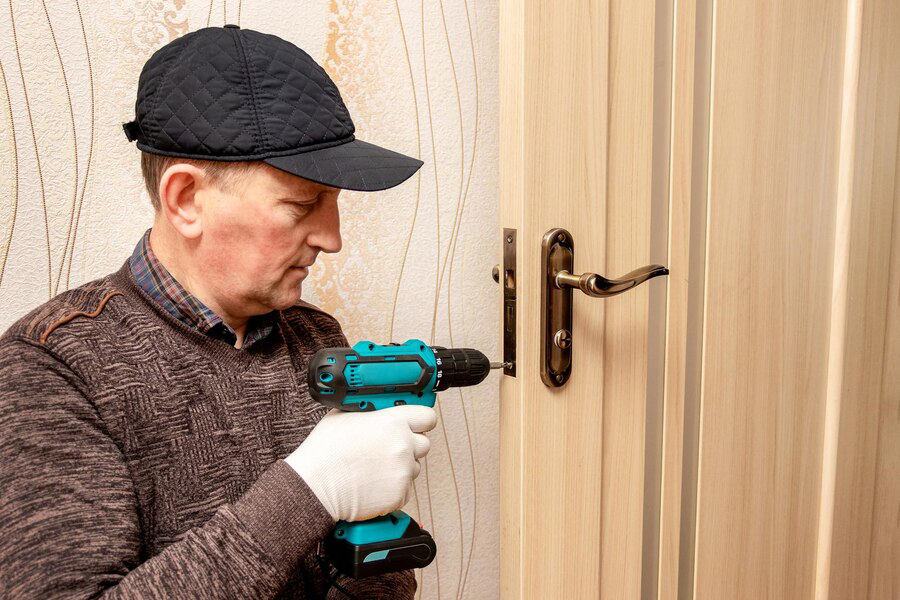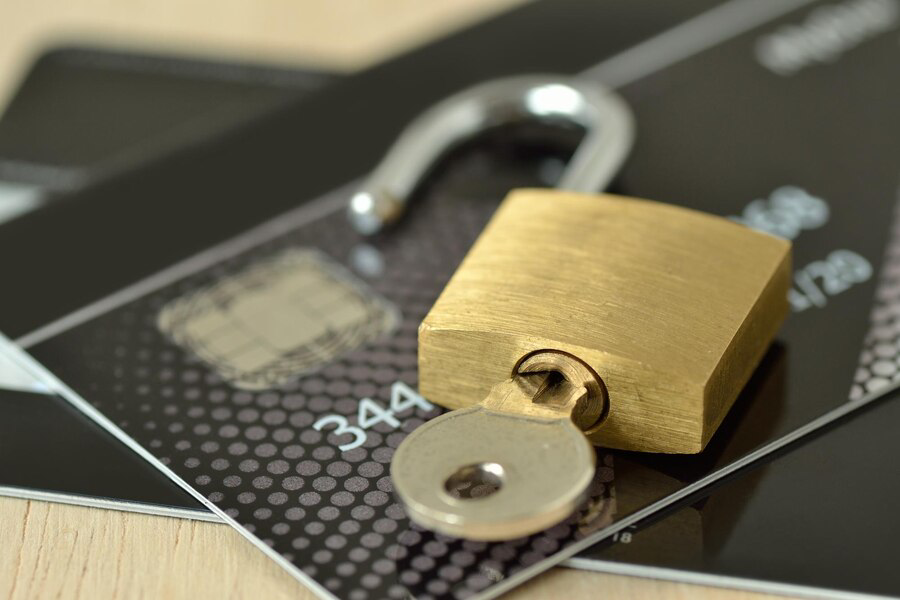When it comes to home security, the first line of defense is often something we take for granted: the locks on our doors. These simple mechanisms play a crucial role in protecting our homes and families, yet many people have a limited understanding of how they work and what options are available. In this blog post, we’ll dive deep into the various types of residential lock mechanisms, their features, and how to enhance your home security.
The Basics of Lock Mechanisms
Locks are essential devices that control access to spaces, ensuring security in homes and businesses. They typically operate through a key, code, or combination, allowing authorized users entry while keeping intruders out. At the heart of most locks is the cylinder, which holds the key. When the key is inserted, its unique cuts align with internal pins of varying lengths, allowing the cylinder to turn only when the correct key is used.

The body of the lock houses all these components, providing the structural integrity needed for reliable operation. This intricate design not only secures doors but also contributes to the overall safety of the property, making understanding lock mechanisms crucial for effective home security.
Types of Lock Mechanisms
Pin Tumbler Locks
- How They Work: Pin tumbler locks are the most common residential locks, utilizing a series of pins of varying lengths. When the correct key is inserted, these pins align with the shear line, allowing the cylinder to turn and unlock the door smoothly.
- Pros: These locks are relatively inexpensive and widely accessible, making them a popular choice for homeowners. Their straightforward design contributes to their cost-effectiveness while ensuring basic security needs are met in residential environments.
- Cons: However, pin tumbler locks are vulnerable to techniques such as lock picking and bumping, which can compromise their security, especially if installed in high-risk areas.
Deadbolts
- How They Work: Deadbolts provide superior security through a solid metal bolt that extends deep into the door frame. Unlike standard spring locks, they require either a key or a thumb turn, offering a robust barrier against forced entry.
- Pros: These locks are significantly more secure than regular locks, making them hard to pick and resistant to common break-in methods. Their reliability is often why they are recommended for external doors.
- Cons: On the downside, the installation process can be more complex, sometimes necessitating professional assistance. Additionally, deadbolts tend to be pricier than standard locks, which may impact budget-conscious homeowners.
- How They Work: Smart locks operate electronically and can be controlled through smartphone apps, keypads, or biometric scanners like fingerprint readers. They offer the convenience of keyless entry and can be programmed to manage access for specific individuals.
- Pros: These locks enhance security with features such as remote locking and unlocking, enabling users to monitor access from anywhere. Their technological integration allows for customizable settings tailored to user preferences.
- Cons: However, smart locks rely on batteries and technology, which may lead to operational failures if not maintained. They also present potential cybersecurity risks, as vulnerabilities could allow for unauthorized access if not properly secured.
Mortise Locks
- How They Work: Mortise locks are installed within a pocket cut into the edge of the door, combining a deadbolt with a latch mechanism. This design provides a higher level of security by distributing force evenly across the lock body.
- Pros: Highly durable, mortise locks are difficult to tamper with, offering exceptional resistance to forced entry. Their robust construction makes them ideal for high-security applications in residential and commercial settings.
- Cons: The trade-off is that mortise locks are typically more expensive than standard locks and often require professional installation, which can add to the overall cost and complexity of securing a property.
Rim Locks
- How They Work: Rim locks are surface-mounted on the door, featuring a deadbolt that adds a layer of security. They are often used alongside other locking mechanisms for enhanced protection against unauthorized entry.
- Pros: One of the key advantages of rim locks is their ease of installation, making them a practical choice for DIY enthusiasts. They can effectively bolster security, especially in conjunction with primary locking systems.
- Cons: However, rim locks generally do not offer the same level of security as mortise locks. Their surface-mounted design can make them more susceptible to tampering or forced entry if not used strategically
Choosing the Right Lock for Your Home
Selecting the right lock for your home involves considering several factors:
Security Needs
Assessing your security needs is crucial when selecting a lock. Consider your home’s location, the local crime rate, and any past security incidents. This evaluation helps determine the level of protection necessary to safeguard your home and family effectively.
Budget
Your budget plays a significant role in lock selection. Higher-security locks typically come with a higher cost, but investing in quality locks can provide peace of mind. Weigh the importance of security against your financial constraints to make an informed choice.
Installation
The ease of installation can vary widely among locks. Some locks are designed for simple DIY installation, while others may require professional expertise. Understanding the installation process helps prevent frustration and ensures your lock functions optimally from the start.
Aesthetic Appeal
Lock design should also complement your home’s style. Locks come in various finishes and designs, allowing you to choose options that enhance your home’s exterior. Balancing functionality with aesthetics ensures your security measures are visually appealing as well.

Enhancing Home Security Beyond Locks
While strong locks are a vital component of home security, a comprehensive strategy requires additional measures to effectively deter intruders. Reinforcing entry points with robust strike plates and strengthened door jambs can significantly enhance resistance against forced entry. Similarly, securing windows with functional locks and considering the installation of security bars or window films can prevent unauthorized access, especially on ground floors.
Investing in a reliable home security system adds another layer of protection by providing alerts and monitoring capabilities. Features like cameras, motion detectors, and alarms help detect potential threats. Moreover, integrating smart home technology allows homeowners to remotely manage and monitor their security systems, ensuring peace of mind and enhanced safety.
Maintaining Your Locks
Maintaining your locks is essential for ensuring they operate smoothly and securely. Regular lubrication with graphite or silicone-based products helps prevent sticking and wear. It’s important to avoid oil-based lubricants, as they can attract dust and grime, leading to potential malfunctions.
In addition to lubrication, periodic inspections are crucial. Check your locks for any signs of wear or damage, such as rust or difficulty turning. If you notice significant deterioration, it’s time to replace them to maintain security. Furthermore, when moving into a new home or losing a key, changing your locks is a smart decision. This ensures that you have complete control over who can access your space.
The Importance of Professional Advice
Seeking professional advice on locks and security measures is crucial for safeguarding your home effectively. A professional locksmith or security expert can evaluate your specific situation, considering factors like the layout of your home, local crime rates, and your personal security concerns. Their expertise ensures that you select the most appropriate locks and security systems tailored to your needs.
Additionally, professionals can offer insights into the latest security technologies and trends, helping you stay updated on the most effective solutions. Whether it’s recommending high-security locks, advanced alarm systems, or smart home integrations, their guidance can enhance your home’s protection and provide you with peace of mind.
Conclusion
Understanding residential lock mechanisms and security is essential for protecting your home and loved ones. By evaluating different types of locks, reinforcing entry points, and considering modern security solutions, you can create a comprehensive security strategy. Remember, consulting a professional locksmith, like Rock Locksmith Calgary, can provide invaluable guidance tailored to your specific needs. Investing in high-quality locks and security systems not only enhances safety but also brings peace of mind. Stay proactive about your home security to ensure a safe and secure environment for you and your family.
